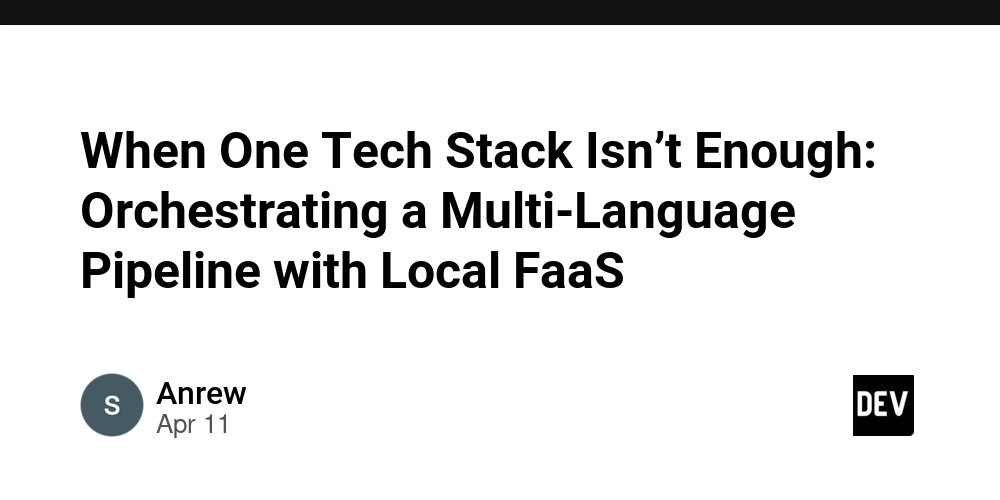Dev
1M
59

Image Credit: Dev
When One Tech Stack Isn’t Enough: Orchestrating a Multi-Language Pipeline with Local FaaS
- The article discusses orchestrating a multi-language pipeline using a local-first FaaS approach to handle real-time data processing across various systems.
- The scenario involves using different languages and tools like Rust, Go, Python, Node.js, and Shell Script for different nodes in the pipeline.
- Node 1 (Rust) focuses on high-performance ingestion, utilizing Rust's memory safety features and ownership model for handling high event throughput.
- Node 2 (Go) deals with filtering and normalization, leveraging Go's concurrency features and ability to compile into a single binary for deployment flexibility.
- Node 3 (Python) handles ML classification, benefiting from Python's ecosystem for data science tasks and ease of loading pretrained models.
- Node 4 (Node.js) manages external service notifications, utilizing Node.js's event-driven nature for real-time hooks like Slack notifications, webhooks, etc.
- Node 5 (Shell Script) focuses on archiving logs using classic CLI tools like tar and gzip, known for their reliability and efficiency in handling file archiving.
- Data adapters play a crucial role in handling different data formats and ensuring seamless communication between nodes while keeping the underlying data format complexities abstracted.
- By adopting a local-first FaaS mindset and unifying the pipeline into a single computational graph, the article highlights significant reductions in friction between teams working with different languages and tools.
- The approach allows each team to focus on their specific node's functionality without being heavily dependent on other teams, thereby streamlining the overall data processing workflow.
- Overall, the local-first FaaS approach proves beneficial for managing a multi-language environment, providing flexibility and efficiency in handling diverse tasks across the data processing pipeline.
Read Full Article
3 Likes
For uninterrupted reading, download the app